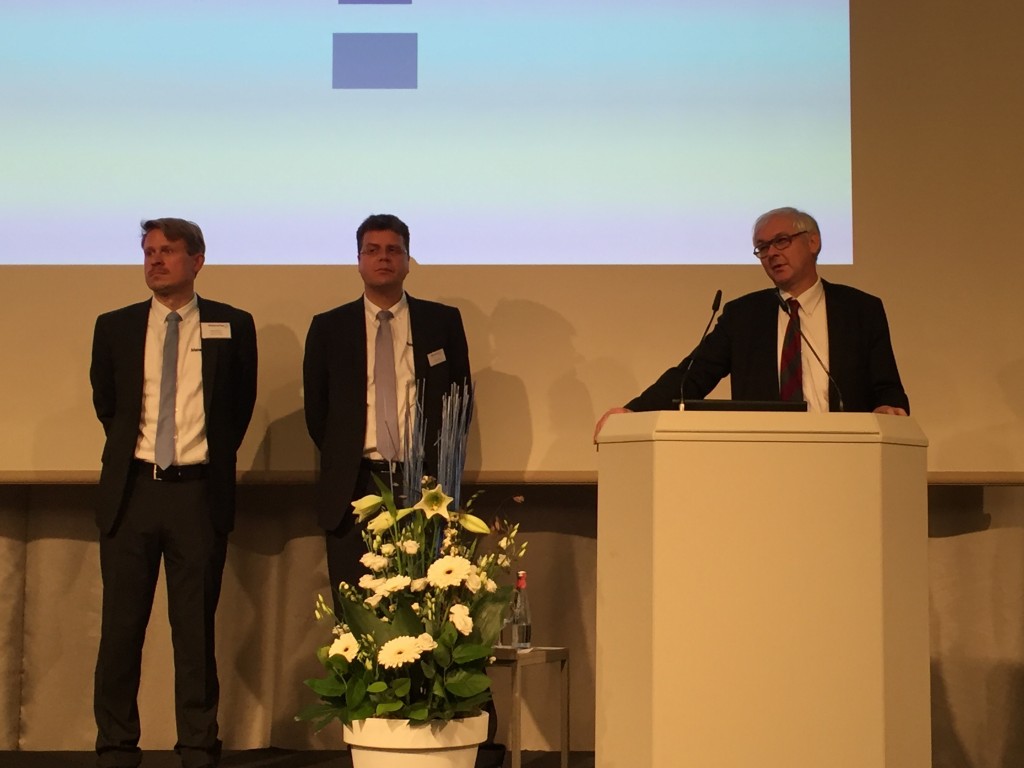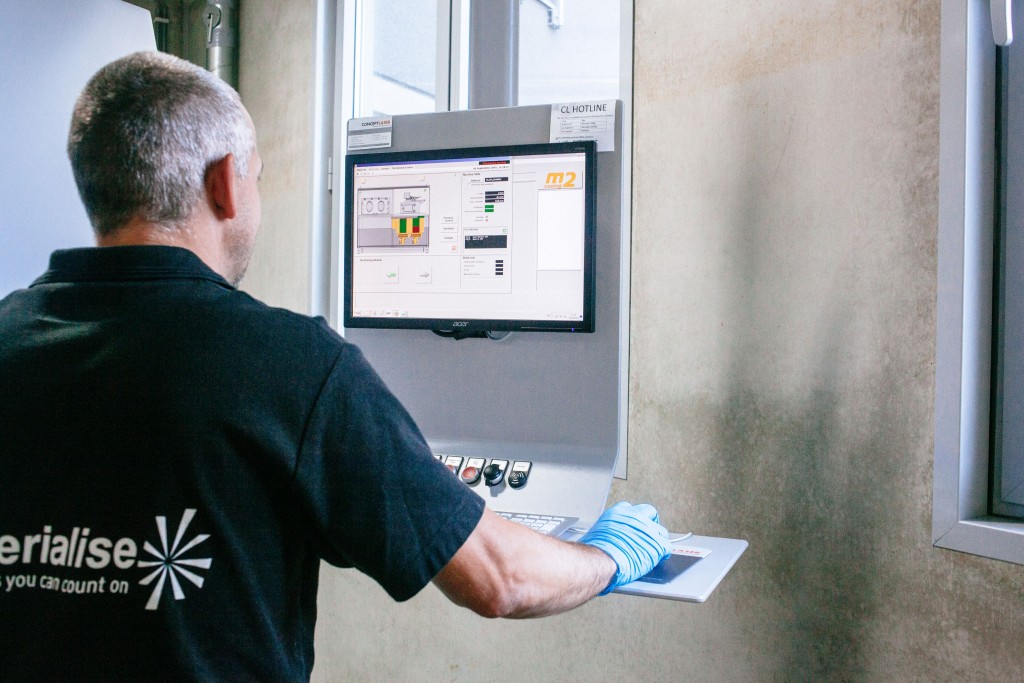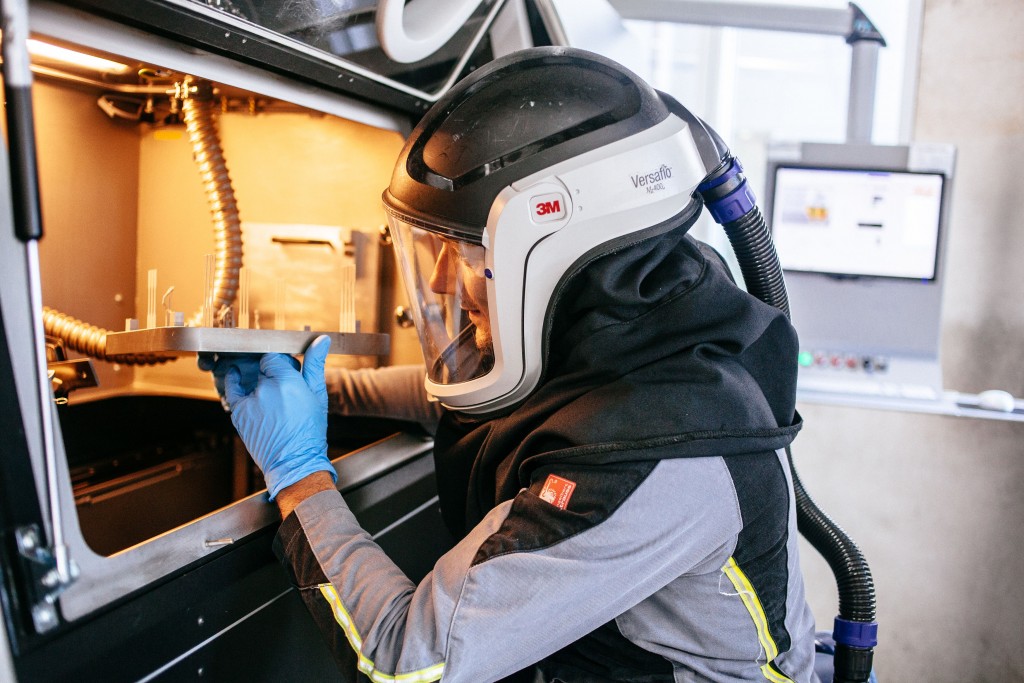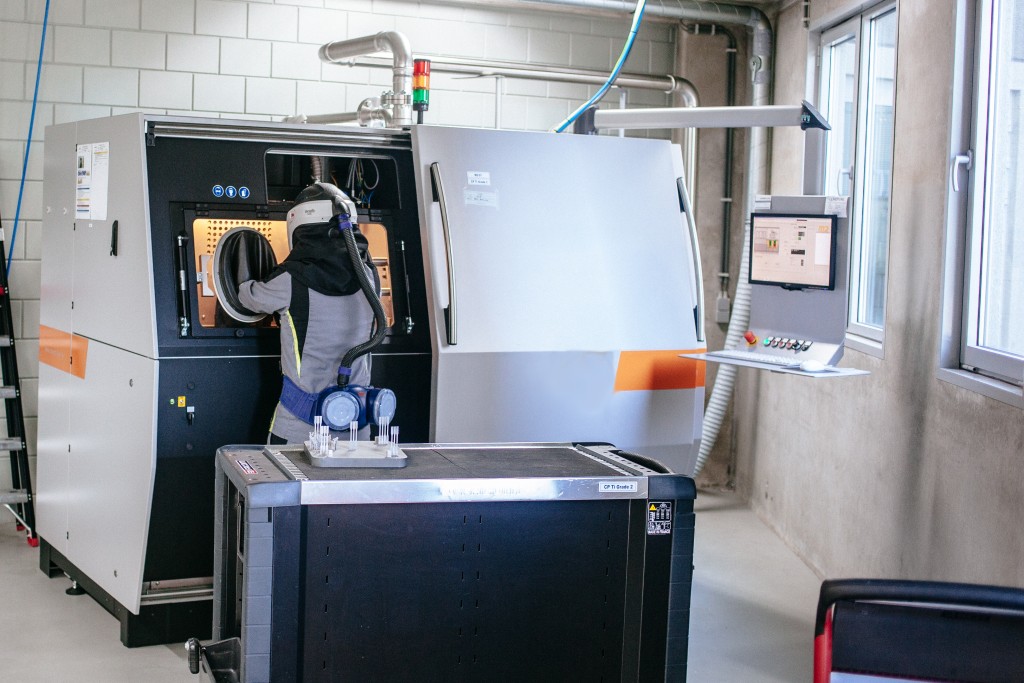During a press conference held today at Euromold, Materialise’s founder and CEO, Fried Vancraen, announced that a new site in Bremen is set to become the Belgian 3D printing service’s Titanium Additive Manufacturing Center for Industrial Customers. The Bremen location is also the heart of Materialise’s Metal Competence Center for software and, starting in late October, this new production line will begin to serve industrial customers looking to manufacture parts in titanium, a material which is becoming more and more common for applications in industries such as aerospace, manufacturing, automotive, and more.
During the press conference at Euromold in Dusseldorf, Vancraen stated that this new production line would mark Materialise’s next step in becoming the most complete factory for 3D printing. Vancraen also went so far as to assert that he personally believes that titanium additively manufactured products are going to be representing as much as 40% or more of all titanium products, in certain areas such as medical prosthetics, in the medium-term future.
Over the years, Materialise has built extensive expertise in metal printing, most notably by developing cutting-edge metal AM software and releasing Build Processors with leading metal OEMs (as in the recent partnership with Arcam Metals). In regards to hardware, Materialise recently announced the completion of an in-house metal printing project that saw a medical production line being installed at their headquarters.
Now, with the technology maturing and the demand for printed metal parts increasing, the company has begun expanding their metal offering on the industrial services side, with the availability of aluminum already being announced earlier this year, through the use of EOS DLMS 3D printers.
Expanding Materialise’s Factory for 3D Printing with a global capacity of more than 120 3D printers and a wide variety of available technologies, Materialise has grown into one of the world’s largest and most comprehensive providers of additive manufacturing services. Every day, over 2,000 parts are produced and shipped to customers all over the globe.
The metal production facility in Germany is Materialise’s forth industrial production unit in Europe, next to the main factory in Belgium and those in Poland and Czech Republic. “In terms of commitment to the German market, this is an important step,” Vancraen said. “It allows us to manufacture parts close to our customers in aeronautics and the industrial goods industry. With this scalable site in Bremen, we clearly put metal printing on the agenda as a strategic part of our industrial offering.”
The entire activity will be incorporated into Materialise’s Bremen office, where the company’s know-how in software for metal printing has been centralized since the acquisition of Marcam Engineering in 2011. The metal production will be led by Ingo Uckelmann, who joined Materialise this year and brings with him a solid background in metal printing for dental applications.
“This operation solidifies the Bremen office’s role as Materialise’s Metal Competence Center,” said Marcus Joppe, Managing Director of Materialise GmbH. “Our team of specialists already have a strong understanding of the needs and challenges of metal AM and by starting this new production line, we will be able to expand our knowledge and apply it to the next generation of software while also offering high-quality manufacturing in titanium to our industrial customers.”
Materialise will be using TiAl6V4, one of the widest-known alloys, combining excellent mechanical properties with a very low, specific weight. The material is corrosion resistant and is used in a variety of demanding engineering environments, such as aeronautics. Applications include functional prototypes, solid end-use parts, and spare parts.
Only a little more than a year ago Materialise was only offering metal parts through external services. Now, the company is set to lead the growth in an exciting sector that is no longer living off hype, but is heading toward real growth as additively manufactured end parts become real, every day products.







